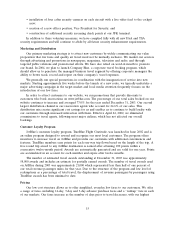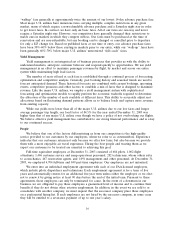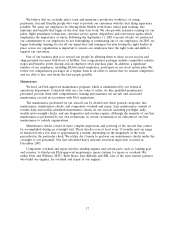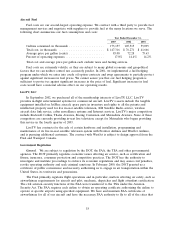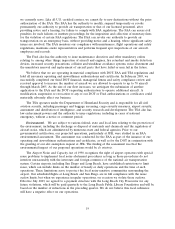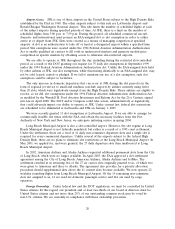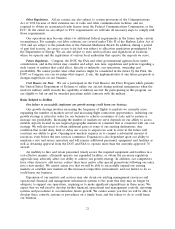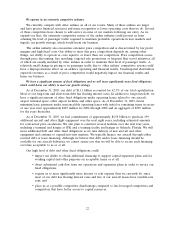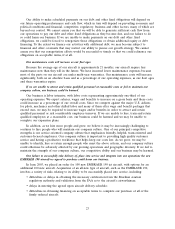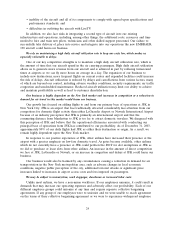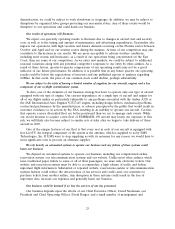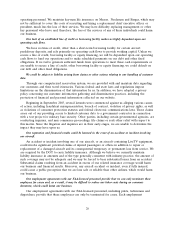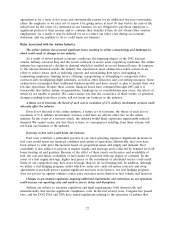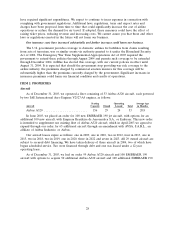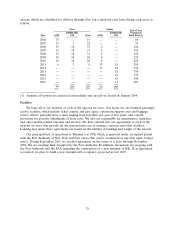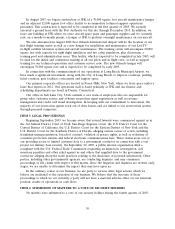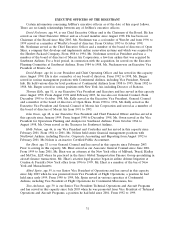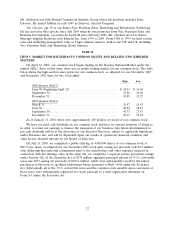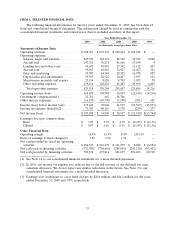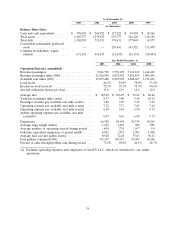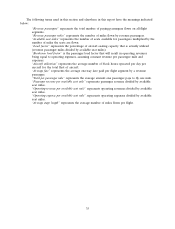JetBlue Airlines 2003 Annual Report Download - page 28
Download and view the complete annual report
Please find page 28 of the 2003 JetBlue Airlines annual report below. You can navigate through the pages in the report by either clicking on the pages listed below, or by using the keyword search tool below to find specific information within the annual report.dissatisfaction, we could be subject to work slowdowns or stoppages. In addition, we may be subject to
disruptions by organized labor groups protesting our non-union status. Any of these events would be
disruptive to our operations and could harm our business.
Our results of operations will fluctuate.
We expect our quarterly operating results to fluctuate due to changes in aircraft fuel and security
costs as well as to the timing and amount of maintenance and advertising expenditures. Seasonality also
impacts our operations, with high vacation and leisure demand occurring on the Florida routes between
October and April and on our western routes during the summer. Actions of our competitors may also
contribute to fluctuations in our results. We are more susceptible to adverse weather conditions,
including snow storms and hurricanes, as a result of our operations being concentrated on the East
Coast, than are some of our competitors. As we enter new markets, we could be subject to additional
seasonal variations along with any potential competitive responses to our entry by other airlines. As a
result of these factors, quarter-to-quarter comparisons of our operating results may not be a good
indicator of our future performance. In addition, it is possible that in any future quarter our operating
results could be below the expectations of investors and any published reports or analyses regarding
JetBlue. In that event, the price of our common stock could decline, perhaps substantially.
We are subject to the risks of having a limited number of suppliers for our aircraft, engines and a key
component of our in-flight entertainment system.
To date, one of the elements of our business strategy has been to operate only one type of aircraft
equipped with one type of engine. Our current dependence on a single type of aircraft and engine for
all of our flights makes us particularly vulnerable to any problems associated with the Airbus A320 or
the IAE International Aero Engines V2527-A5 engine, including design defects, mechanical problems,
contractual performance by the manufacturers, or adverse perception by the public that would result in
customer avoidance or in actions by the FAA resulting in an inability to operate our aircraft. Carriers
that operate a more diversified fleet are better positioned than we are to manage such events. While
our recent decision to acquire a new fleet of EMBRAER 190 aircraft may lessen our exposure to this
risk, we will likely also become subject to similar sets of risks after we begin to take delivery of these
aircraft in 2005.
One of the unique features of our fleet is that every seat in each of our aircraft is equipped with
free LiveTV. An integral component of the system is the antenna, which is supplied to us by EMS
Technologies, Inc. If EMS were to stop supplying us with its antennas for any reason, we would have to
incur significant costs to procure an alternate supplier.
We rely heavily on automated systems to operate our business and any failure of these systems could
harm our business.
We depend on automated systems to operate our business, including our computerized airline
reservation system, our telecommunication systems and our website. Unlike most other airlines, which
issue traditional paper tickets to some or all of their passengers, we issue only electronic tickets. Our
website and reservation system must be able to accommodate a high volume of traffic and deliver
important flight information. Substantial or repeated website, reservations system or telecommunication
systems failures could reduce the attractiveness of our services and could cause our customers to
purchase tickets from another airline. Any disruption in these systems could result in the loss of
important data, increase our expenses and generally harm our business.
Our business could be harmed if we lose the services of our key personnel.
Our business depends upon the efforts of our Chief Executive Officer, David Neeleman, our
President and Chief Operating Officer, David Barger, and a small number of management and
25


